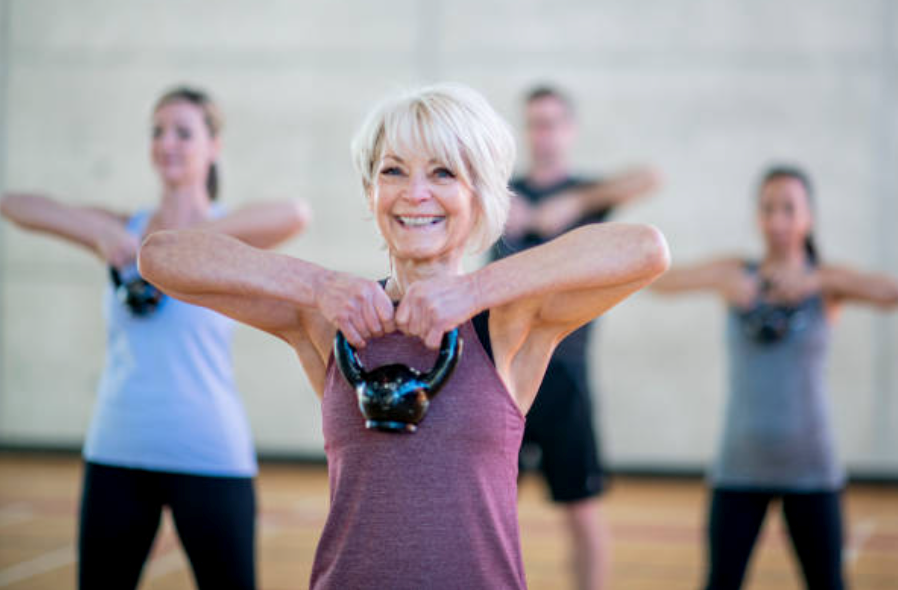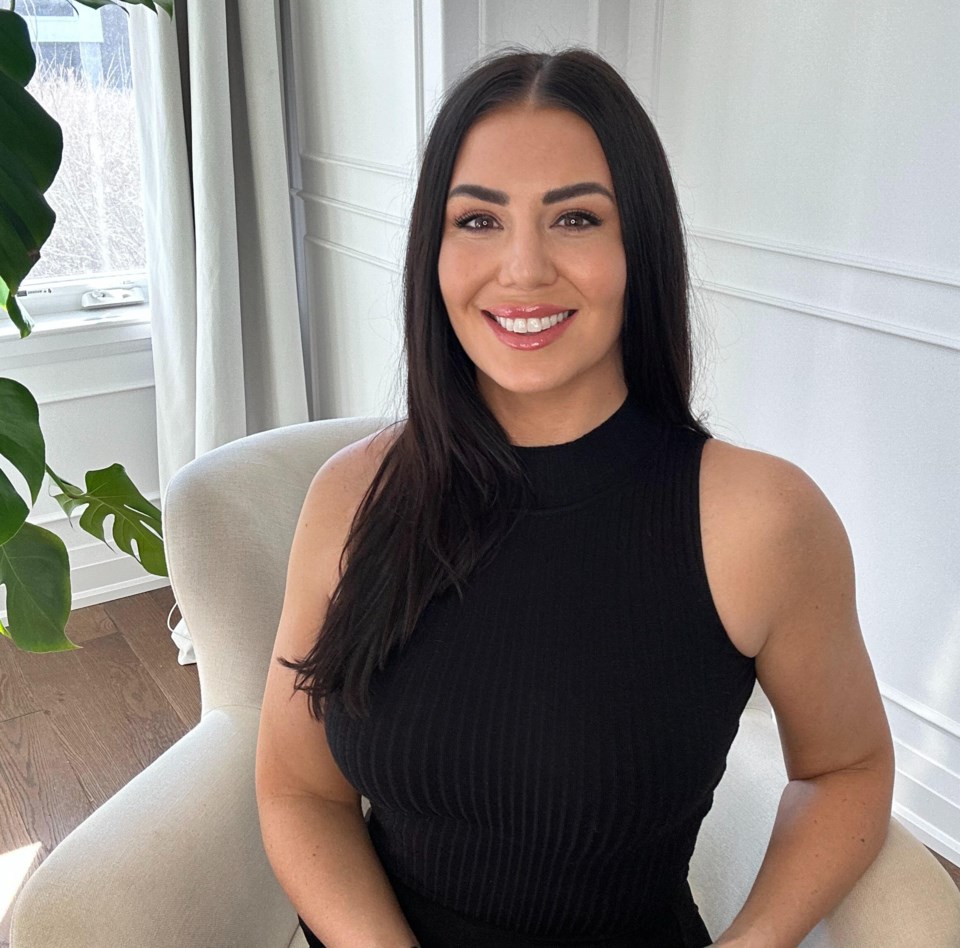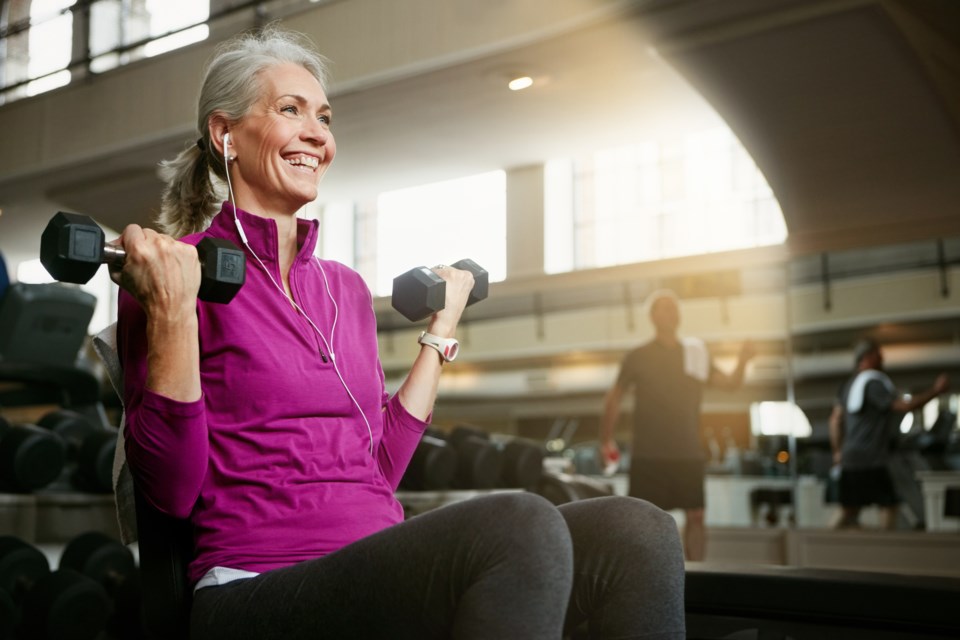If there’s one form of exercise that deserves a permanent place in your weekly routine over the age of 40, it’s resistance training. We’re talking lifting, pressing, squatting, pulling—movements that build strength, lean muscle, and muscular and skeletal resilience from the inside out.
And while weight training has long been a mainstay in men’s fitness routines, it’s time more women saw it not just as an optional add-on, but essential for aging well—especially during the transition from perimenopause into post-menopause.
Here’s why.
Your muscles aren’t just for looks
Let’s start with muscle mass. Beginning in your 30s, women lose roughly 3% to 8% of muscle per decade, with the rate accelerating further after your 50th birthday. That matters, because muscle plays a crucial role in metabolic health, strength, balance, and energy levels—not to mention how we move and feel every day.
And no, resistance training won’t make you “bulky.” What it will do is help you maintain (or build) lean muscle tissue, which naturally burns more calories at rest and helps stabilize blood sugar and insulin sensitivity—which is key for reducing risk of type 2 diabetes.
According to a meta-analysis, regular strength training in postmenopausal women improves body composition, muscle function, and overall metabolic health.

Bone health: A silent issue
Osteoporosis doesn’t announce itself until it’s too late. But by the time women hit menopause, estrogen levels plummet, and bone density declines too. In fact, women can lose up to 20% of their bone mass in the five to seven years following menopause.
The good news? Strength training has been shown to significantly slow this decline—and in some cases, even reverse it. Research shows that regular high-intensity resistance training was not only safe for postmenopausal women but increased bone density, particularly in the lumbar spine, a problem area for many as we age.
Think of it this way: every time you lift something heavy, you’re making your bones stronger for future years. Not a bad motivator!
Mood, mental health and hormones
If you've noticed more mood swings, poor sleep, or increased anxiety during your 40s and 50s, you're not imagining it. Hormonal fluctuations in perimenopause can wreak havoc on emotional health. Strength training to the rescue again.
Resistance training increases the production of feel-good neurotransmitters dopamine and serotonin, and may help reduce cortisol (your stress hormone). It's also been linked to better sleep quality and lower risk of depression in middle-aged women.
Plus, it’s super empowering. When you realize you can deadlift more than your suitcase or squat your body weight, your confidence shifts—in and out of the gym.

6 tips to start (or get back into) resistance training
You don’t need to jump into powerlifting or invest in a pricey home gym. Here’s how to ease in:
- Start with bodyweight: Movements like squats, push-ups, or planks build a strong foundation.
- Use resistance bands or light weights: Great for home workouts and joint-friendly progressions.
- Focus on form, not speed: Quality reps matter more than rushing.
- Progress gradually: Add resistance slowly to avoid injury.
- Aim for 2–3 sessions per week: Consistency beats intensity, especially in the beginning.
- Join a team training studio with group classes like F45 to take the guesswork out of programming and let your coach know the level you’re starting at.
If you’re a woman in your 40s, 50s, 60s—or even 70s—resistance training isn’t just a fitness trend. It’s a form of preventative medicine. It keeps your bones strong, your muscles toned, your metabolism humming, and your mood more stable. It’s never too late to start, and every rep counts. You’ve got this!
About the Author

Alicia is a journalist and editor in digital and print media specializing in health, nutrition, fitness, and wellness. She was previously the Editorial Director of Clean Eating and Vegetarian Times. Her work has also appeared in Hone Health The Edge, Yoga Journal, Women’s Running, and Oxygen, among others. In addition to being a content creator, she's an ISSA-certified nutritionist, certified personal trainer, and fitness studio owner in Toronto. Alicia loves spreading the word about helpful, science-backed health information, and she can be contacted via her website at aliciamtyler.com.




